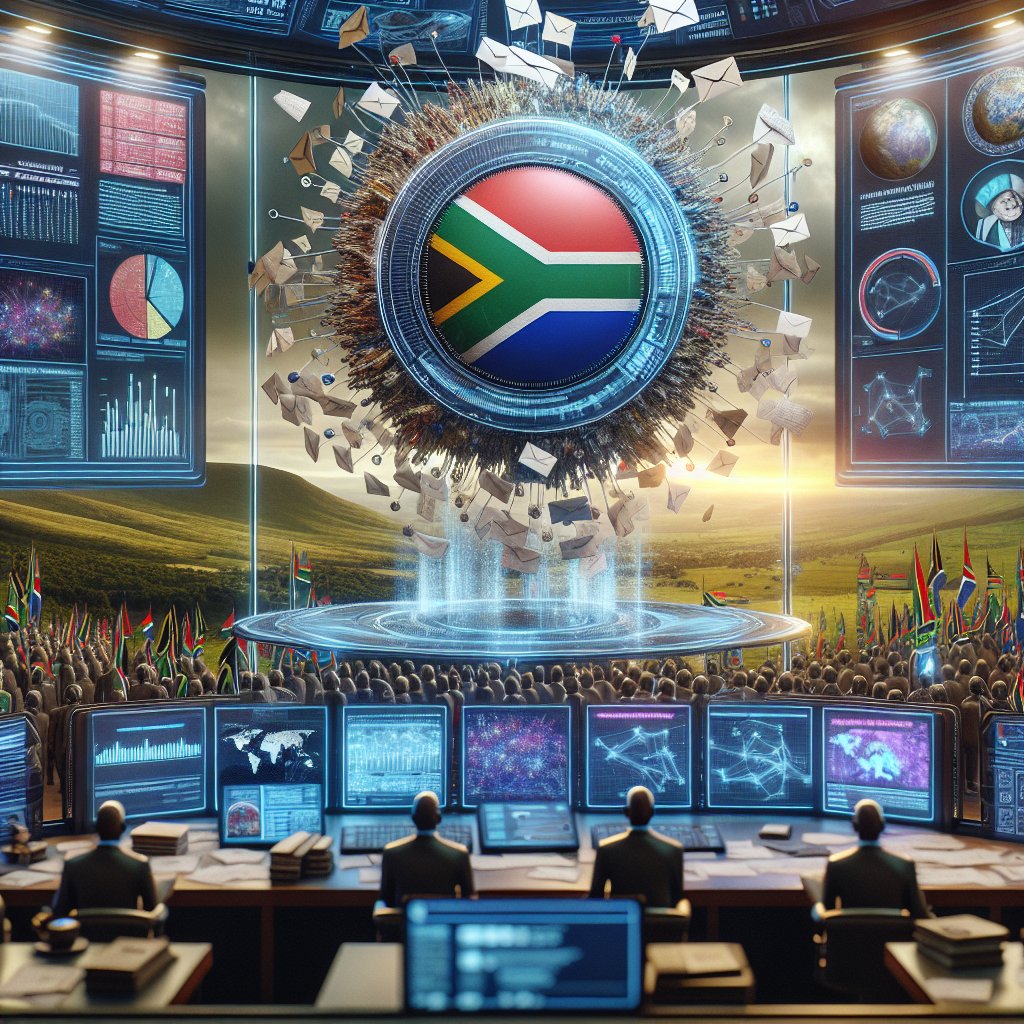Image created by AI
Controversy Engulfs South African Politics as DA Requests US Assistance in Elections
Recent developments in South African politics have brought sharp scrutiny upon the Democratic Alliance’s (DA) latest maneuver—a letter to U.S. Secretary of State Antony Blinken, requesting increased Western support to monitor the upcoming May 2024 elections. This request has divided political commentators and ignited a firestorm of criticism from the ruling African National Congress (ANC).
In a bold move to garner international attention, DA MP and shadow minister for international relations, Emma Louise Powell, advocated for a “sharpened appeal” to the international community to ensure the integrity of the 2024 polls. She highlighted the potential risk of misinformation and disinformation campaigns, drawing parallels with hacking incidents that have marred past U.S. elections. The letter, which was addressed via U.S. ambassador to South Africa, Reuben E. Brigety, did not go unnoticed.
Reactions to the DA’s approach have been polarized. Independent analyst Sandile Swana condemned the gesture as “highly provocative,” voicing surprise over the DA’s sudden preference for U.S. oversight—a departure from their traditional stance since South Africa's democratic rebirth in 1994. Swana's concerns lie in besmirching the credibility of the Electoral Commission of South Africa (IEC), an institution that has been at the forefront of conducting elections since the end of apartheid.
Swana's perspective reflects a broader concern that such actions might serve as precursors to unwarranted foreign influence and a betrayal of South African self-governance. The ANC's backlash against the DA has been fierce, accusing it of engaging in “a reactionary and inhumane agenda.” It went as far as referencing the DA leader’s contentious comments on Israel and Palestine to illustrate the party's controversial positioning on international affairs.
However, Professor Dirk Kotzé of the University of South Africa has expressed "sympathy for the DA view," underscoring the limited resources at the IEC’s disposal, as well as the continual threat of cyber-attacks that could undermine the election's security. Kotzé clarified that the DA’s intention was to request the U.S. embassy’s support in South Africa—not direct intervention from Washington, D.C.—emphasizing a need for enhanced capabilities for domestic election observers.
The IEC's fiscal constraints, coupled with the ever-growing sophistication of digital threats, raise legitimate concerns over the reliability of election infrastructure. However, the conversation loops back to the contentious balancing act between safeguarding democratic processes and guarding national sovereignty against foreign interference.
As South Africa navigates the complexities of these geopolitical undercurrents, the stance of other political entities such as the Economic Freedom Fighters reiterates the sensitivity surrounding external involvement in national elections, a sentiment echoed by Swana’s remarks on the historical context of South African-American relations.
Amidst this confluence of opinions, the public’s focus is on how these actions might shape South Africa's path to the polls in 2024, casting a spotlight on the IEC’s independence and reinforcing debates on international presence in sovereign electoral processes.










